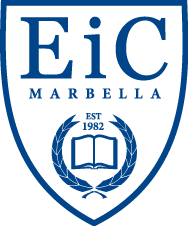
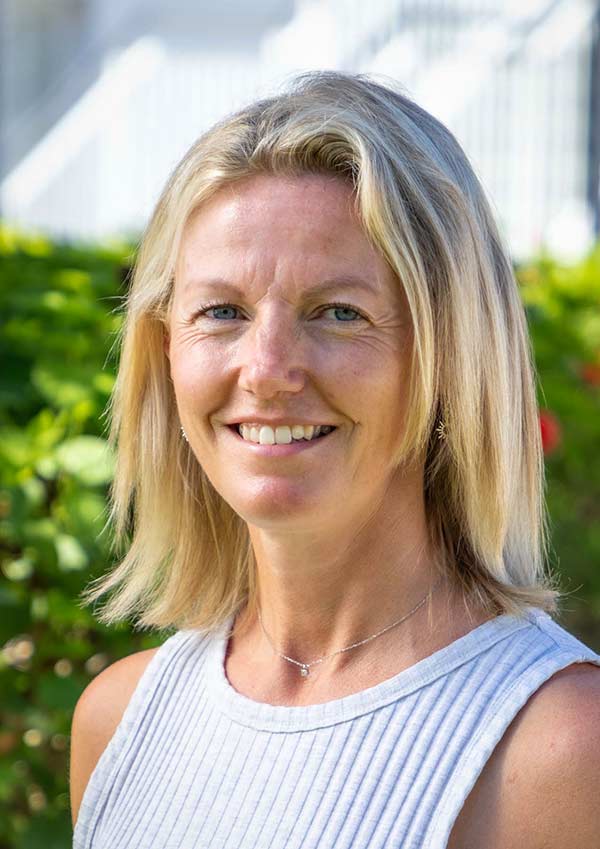
Years 10 and 11 mark an important and intense period in the life of an EIC student. They are exciting and challenging years, where students go deeper into their learning across a variety of subjects.
A two year course of compulsory and optional IGCSE subjects culminates in examinations at the end of Year 11 that are externally set, marked and moderated by one of two examination boards: Cambridge or Pearson.
Year after year, our graduating Year 11 students are a credit to the school with outstanding results and an exceptional attitude shown towards their studies, maintaining EIC’s reputation as a centre for academic excellence on the Costa del Sol. Our reduced class sizes and family environment enable staff to truly know individual students and therefore maximise their potential whilst caring for their overall wellbeing.
Thanks to a thorough introduction via the Key Stage 3 programme, students are able to start their IGCSE courses with real confidence, knowing that they have chosen subjects they will enjoy and that will stretch them.
In Key Stage 4, the three IGCSE compulsory subjects are: Mathematics, English Language and Spanish. Physical Education is also part of the core curriculum. Six further subjects, which enrich the curriculum and provide a varied and balanced IGCSE portfolio, are chosen from the following list:
This selection is carefully planned in consultation with parents, teachers and students to ensure that the resulting course combination matches each student’s aptitude and ability. At the same time it prepares them for further education, where we facilitate a smooth transition for most students to A Level studies in Years 12 and 13.
Aside from our strong academic focus, our philosophy is to nurture confident, independent individuals who have the ability and tenacity to solve problems, lead others to make changes & make significant contributions to the wider life of the community. We offer a wide range of extracurricular activities and initiatives that ensure a holistic, enjoyable and enriching provision, including:
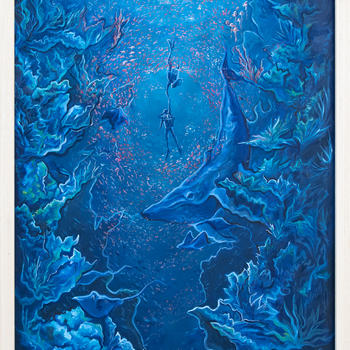
GCSE Linear Two Year Course
Pearson
COMPONENT 1. Personal Portfolio (Internally Set) 60%
COMPONENT 2. Externally Set Assignment (set by Pearson) 40%
PERSONAL PORTFOLIO/ COURSEWORK
Students create a personal portfolio of work that demonstrates the knowledge, understanding and skills specified in the syllabus. They are free to devise any theme(s), project(s) or task(s) appropriate to available resources, expertise, abilities and interests.
EXTERNALLY SET ASSIGNMENT
Students must present personal response(s) to an externally set broad-based thematic starting point, set by Pearson in the ESA paper.
Both components allow students to:
* The proportion of the 120 guided learning hours spent on this component should reflect its 60% weighting.
Art and Design allows students to develop transferable skills, teaching them to:
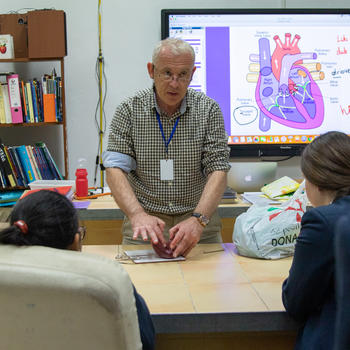
IGCSE
Cambridge International Examinations
The syllabus is assessed in three written papers:
These papers can be taken at core or extended level.
The Biology syllabus covers a diverse range of topics including classification, the key life processes of living things, key chemical molecules, biotechnology, genetics and human influences on the environment. It provides us with a sound understanding of how the human body functions and of how we humans collectively influence our surroundings.
As in all of the sciences, there is an emphasis on practical work and the course is supported by an online Kognity textbook which is engaging and interactive. The IGCSE Biology course provides a solid foundation on which to build for those taking on the subject at an advanced level.
According to the Washington Post, Charles Darwin’s “On the Origin of Species” has been voted the academic book that changed the world the most by a British academic publishing group and by the public.
The Royal Society science book prize listed Richard Dawkins’ book “The Selfish Gene” as the most influential science book of all time.
These two books were published about 100 years apart.
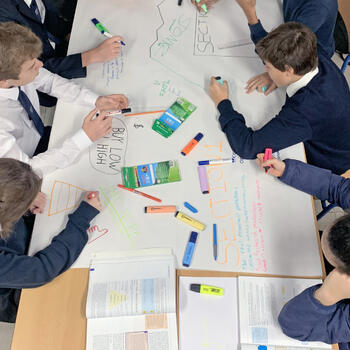
IGCSE Business Studies
Cambridge International
100% Exam based
Paper 1 (50%) - 90 mins
Paper 2 (50%) - 90 mins
The Cambridge IGCSE Business Studies syllabus develops students’ understanding of business activity in the public and private sectors, and the importance of innovation and change. Students find out how the major types of business organisation are established, financed and run, and how their activities are regulated. Factors influencing business decision-making are also considered, as are the essential values of cooperation and interdependence.
Students not only study business concepts and techniques but also enhance related skills such as numeracy and enquiry.
Cambridge IGCSE Business Studies is accepted by universities and employers as proof of an understanding of business concepts and techniques across a range of different types of businesses.
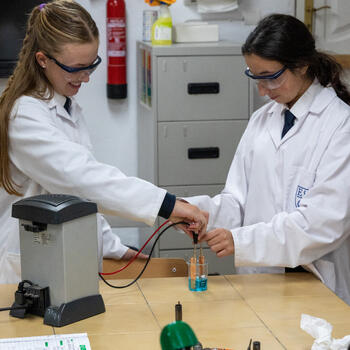
IGCSE
Cambridge International Examinations
The syllabus is assessed in three written papers:
These papers can be taken at core or extended level.
Chemistry is a branch of science which is concerned with materials of every description. It is an important Science. Chemists are interested in properties of substances. Chemists try to change one substance into another e.g. crude oil into a range of useful and diverse products such as petrol, diesel, nylon, paint and adhesives. Chemistry helps us to understand those reactions which are responsible for life (‘you are a walking test tube’).
We learn the potential dangers of various pollutants on the environment. One of the many current growth areas in chemical research is biotechnology. The Chemistry IGCSE course is of a practical nature, giving the pupils, wherever possible, an opportunity to design their own experiments, use apparatus, make observations, investigate and deduce logically.
Throughout the teaching of the syllabus, attention is drawn to the uses and effects of chemistry in everyday life.
Recently chemists have synthesised the clotting component of blood thus eliminating the risk of haemophiliacs contracting Aids from contaminated blood.
Did you know that Miss Virginia 2019 won her title dressed in a lab coat, rubber gloves and safety goggles? She was demonstrating an exciting chemical reaction commonly known as elephant´s toothpaste. Who says Chemists can´t be beautiful and cool!
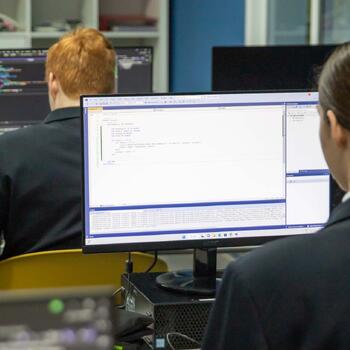
IGCSE
Cambridge International
The course is assessed in two exams, one practical the other theory.
Paper 1, the theory exam, is worth 60% of the final mark,
Paper 2, the practical paper, is worth 40% of the final mark.
Computer Science theory covers a range of topics including, binary, hexadecimal and denary number systems. Hardware and software used in computing, the ethics of computing and the theory of how data is stored in a computer.
The practical exam covers the writing of software to solve problems. Students will complete a programming project and then answer questions on the project in their practical exam.
Students will be expected to write code and pseudocode in their written exam without the use of a computer.
Employment in computer occupations is projected to increase by 15 percent from 2020 to 2025, and due to its large employment size, this growth is expected to result in nearly half a million new jobs, far more than any other STEM group.

GCSE
Pearson
Component 1 - Devising (Coursework and Performance) (40%)
Component 2 - Performance From Text (20%)
Component 3 - Theatre Makers in Practice (Written Exam) (40%)
The GCSE Drama syllabus will give you the opportunity to create your own work, as well as look at plays written by other people. The course encourages creativity, focusing on practical work, which reflects 21st century theatre practice and developing skills that will support progression to further study of Drama and a wide range of other subjects.
COMPONENT 1: DEVISING
Coursework and Performance worth 40% of the qualification.
Students create and develop a devised piece of theatre for performance and submit a written portfolio between 1500 – 2000 words.
COMPONENT 2: PERFORMANCE FROM TEXT
Performance worth 20% of the qualification - externally assessed. Students perform to a visiting examiner two key extracts from a chosen performance text either as a group and/or a monologue or duologue.
COMPONENT 3: THEATRE MAKERS IN PRACTICE
Written Examination: 1 hour and 45 minutes and worth 40% of the qualification. Practical exploration and study of one complete performance text. Live theatre performance evaluation.
As the course is 50 percent practical work based it is highly recommended that students have a strong level of performance attainment at KS3 and a very good level of spoken English. Due to the high percentage of group work and collaboration involved in the subject, a high level of attendance is required when choosing Drama.
As well as acquiring the skills involved in creating and performing Drama, you will also be able to acquire skills in working with others, problem solving and communication.
You will find that Drama will help you feel more selfconfident and prepare you to deal with a range of different situations and people.
Drama can help you develop transferable skills, which you can take into careers or jobs such as:
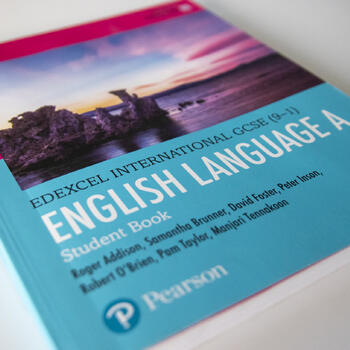
IGCSE
Pearson
Exam (60%): 2 hours 15 minutes
Section A: Reading
Section B: Transactional Writing
Coursework Portfolio (40%)
As a compulsory course, Pearson IGCSE First Language English offers all students the opportunity to broaden and develop vital skills. Students are given the opportunity to respond with understanding to a rich array of texts as a whole during the course. These texts are used to inform and inspire their own creative writing in a range of text types for different purposes and audiences. Students are encouraged to become appreciative and critical readers, writers, speakers and listeners.
More than 550 new words and sub-entries have been added to the Oxford English Dictionary in their latest update (January 2020), including mentionitis, awesomesauce, safe space, and shticky.
For any potential degree choice or career, everyone is required to have a 5 grade as a minimum in English Language. In some cases, if you are a non-native English speaker, this requirement could be increased to a 6 grade.

IGCSE
Cambridge
Exam (60%): 2 hours
Section A: Unseen Poetry
Section B: Anthology
Section C: ‘Of Mice and Men’
Coursework Portfolio (40%)
Literature in English enables students to read, interpret and evaluate texts through the study of literature.
Students develop an understanding of literal meaning, relevant contexts and of the deeper themes or attitudes that may be expressed. Through their studies, they learn to recognise and appreciate the ways in which writers use English to achieve a range of effects, and will be able to present an informed, personal response to the material they have studied.
The syllabus also encourages the exploration of wider and universal issues, promoting students’ better understanding of themselves and of the world around them.
The fastest selling book in history is ‘Harry Potter and the Deathly Hallows’, the seventh - and final - novel in JK Rowling’s (UK) Harry Potter series, which sold 8.3 million copies in the first 24 hours (or 345,833 books per hour), following its release in the USA at 00.01 on 21 July 2007.
Rowling also holds the record for Highest annual earnings for a children’s author having notched up an estimated US$300 million (£150 million) between 2007-2008 according to the Forbes Celebrity 100 list released on 11 June 2008.
For any potential degree choice or career, everyone is required to have a 5 grade as a minimum in English Literature. In some cases, if you are a non-native English speaker, this requirement could be increased to a 6 grade.
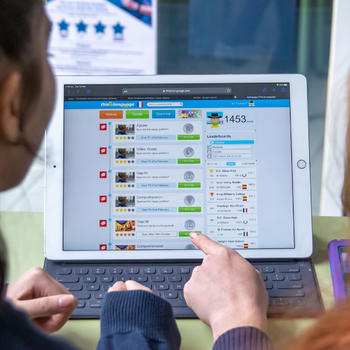
IGCSE
Pearson
3 units:
You will cover 5 broad topic areas: everyday activities; personal and social life; the world around us; the world of work; the international world. You will also expand your vocabulary and widen your range of tenses and language
structures.
You will build upon your existing knowledge and understanding of the language and culture relating to the countries where the language is spoken. In addition, you will develop your competence in the 4 main skills of listening, speaking, reading and writing. The course serves as a good basis for further language study.
French is a language that is spoken on all 5 continents, so it is an incredible asset to open many doors. It is an analytical language that structures thought and develops critical thinking, which is a valuable skill for discussions and negotiations. It is not only a language for the job market, but also the language of culture.
Learning French is the pleasure of learning a beautiful, rich, melodious language, often called the language of love.
As well as specialising in the study of the language itself, you can combine the language with many other specialist subjects. A language will be an enrichment to any career and will open doors. In an even more globalised world, the need for linguists is constantly increasing and appealing to a huge variety of employers.
Some popular combinations in the past have been:
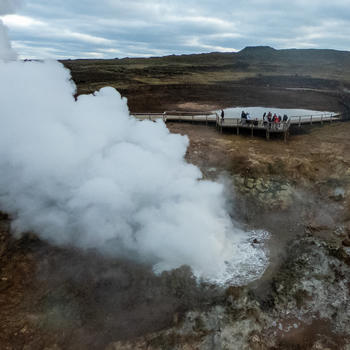
IGCSE
Pearson
Paper 1 - Physical Geography- 40%
Paper 2 - Human Geography- 60%
Geography lies at the junction between Science, Maths and the Humanities. It is the route to well rounded individuals with a sound understanding of the world around them, how they fit into that world and how they can influence it. Planet Earth is our home. It is awesome, diverse, inspiring and ever changing.
The subject is regarded as a facilitating subject and this means it works well with almost any combination of subjects. It shows that those who go the Science route can write and communicate effectively and that those that take the Arts / Languages / Humanities route can understand enough science and data to analyse and navigate our increasingly complex world.
It is therefore a vital subject for 21st century global citizens, enabling us to face questions of what it means to live sustainably in an interdependent world. Geography helps us investigate and think critically and creatively about the complexities of our world, and deal with the different views and feelings relating to how we interact with our Earth.
Mexico City sinks 4-6 inches (10-15 cm) a year because it was built over a lake. The city has sunk around 32 feet/10 m in the last 60 years.
Africa is the only continent situated in all the four hemispheres – the western, the eastern, the northern and the southern.
Geography is regarded as a facilitating subject. This means it works well with almost any combination of subjects. It provides employers with evidence that you can deal with many different aspects of a job as it has a little bit of everything.
Potential careers are as diverse as Environmental Engineer, Petroleum Geologist, Oceanographer or Disease prevention specialist to Journalism, Film and Documentary production, International relations, Law or Political analyst.

IGCSE
Pearson
3 units:
You will cover 5 broad topic areas:
Home and abroad; Education and employment; Personal life and relationships; The world around us; Social activities, fitness and health.
You will expand your vocabulary and widen your range of tenses and language structures. You will build upon your existing knowledge and understanding of the language and culture relating to the countries where the language is spoken.
You will develop your competence in the 4 main skills of listening, speaking, reading and writing. The course serves as a good basis for further language study.
German is the most widely spoken native language in Europe and German companies are global market leaders which means studying German opens doors in the business world.
As well as specialising in the study of the language itself, you can combine the language with many other specialist subjects. German will be an enrichment to any career and will open doors. In an even more globalised world, the need for linguists is constantly increasing and appealing to a huge variety of employers.
Some popular combinations in the past have been:

IGCSE
Cambridge
Assessment overview: All candidates take three components.
All candidates take Paper 1 and Paper 2.
Paper 1: 2 hours Written paper 40% 60 marks Candidates answer two questions from:
Section A (Core Content) and one question from Section B (Depth Studies)
Paper 2: 2 hours Written paper 33% 50 marks - Candidates answer six questions on one prescribed topic taken from the Core Content.
Paper 4: Alternative to coursework(Paper 3). Russia Depth Study.
The twentieth century: international relations since 1919.
The course focuses on international relations - which in essence means the diplomatic impacts of World War One which ironically, in the final analysis, was a fundamental causal effect leading to World War Two as the The Third Reich tried to dismantle the post war treaties.
At the same time, there were three revolutions in Russia, ultimately leading to a new super power, Stalin’s USSR.
The content focuses on the following Key Questions:
• Were the peace treaties of 1919–23 fair?
• To what extent was the League of Nations a success?
• Why had international peace collapsed by 1939?
Depth Study
Russia, 1905–41
Students who complete this course will begin to realise that the Twentieth Century was an era of political extremes, the legacy of which resonates even today!
Louis Theroux, Prince Charles, Jonathan Ross, Elana Kagan (Appointed to the Supreme Court by Barack Obama), Ayn Rand, Steve Carell (American Office) and Shakira are History Graduates! Likewise, Nicky Campbell and Simon Mayo. The BBC foreign affairs correspondent Jeremy Bowen did the same from University College London. Other famous graduates in the media include comedian Sacha Baron Cohen, aka Ali G and Melvyn Bragg, who both graduated from Oxford.
In addition to a career as a professional historian, history students may also have careers in law, public service, diplomacy, publishing, journalism, film, theatre, clergy, administration, and basically anything which requires critical thinking, research, and effective verbal and writing skills of communication.

IGCSE(Modular)
Pearson
Paper 1 & Paper 2 (both 2 hours)
The study of Maths at any level develops skills of analysis, logical argument, problem solving and communication, and can be enjoyed for its own sake. It provides language for science, social studies and finance, and following the extended course will provide a great help to students of AS level Physics, Chemistry, Biology, Geography, Business Studies as well as AS level Maths itself, which in turn leads to a multitude of university courses.
In the digital world, mathematical modelling and statistics are of enormous benefit to industry and have revolutionised business and commerce. In the modern world, based on science and technology, the mathematically literate are at an advantage.
“Eleven plus two” is an anagram of “twelve plus one”. Not only do both phrases give an answer of 13, but they also both include 13 letters.
Mathematics is a strong asset to any career, as it requires people to develop problem solving skills, persistence and determination. Mathematics graduates from EIC have moved onto diverse careers including programming, engineering, law and psychology, to name just a few examples.
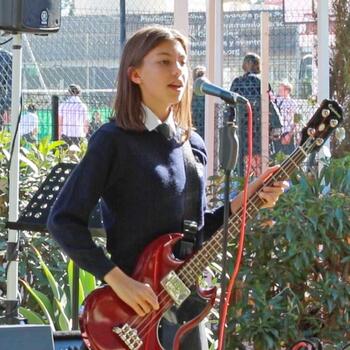
IGCSE
Cambridge International
COMPONENT 1
Listening Paper - 1 Hour 15 Minutes (40%)
COMPONENT 2
1 Solo Performance and 1 Ensemble Performance lasting a total of 4 -10 minutes (30%)
COMPONENT 3
2 Compositions, one in a Classical/Western style and one in a style of your choice (30%)
The study of music at IGCSE is both practical and academic. By developing your knowledge of different styles of music and how music works, you will express yourself through the music you write and perform. This course develops key skills such as Analysis and Listening, Teamwork, Creativity and Initiative.
COMPONENT 1: LISTENING
The exam is in 4 sections:
COMPONENT 2: PERFORMING
The solo and group performances can be on the same instrument or voice, or if you play two instruments you can choose to do both. You should be able to perform pieces at grade 4 standard by Year 11. Performances are recorded in Year 11 and sent to be moderated.
COMPONENT 3: COMPOSITION
The composition portfolio is the coursework element and students begin working on their first piece in year 10 and the second in year 11. The portfolio is then sent to be moderated.
As the course is 30 percent practical and 30 percent composition based it is highly recommended that students have previous musical experience.
Students should be having a weekly lesson on their instrument and should have a regular practice routine. Students should be prepared to take part in weekly ensemble rehearsals i.e. band or orchestra. Students should also be prepared to perform at school events like our Soundgarden concerts. A basic knowledge of musical theory would be an advantage.
As a rough guide to start the course it would be advisable to be a Grade 2 level on an instrument and in musical theory.
Music is a highly desirable subject for University applications as participation in Music demonstrates commitment and reliability, good time management, creativity, team work, resilience and problem-solving, self-confidence, good communication and many other transferable skills.
It’s worth bearing in mind that the transferable skills gained through studying music are applicable to a huge variety of career paths including:
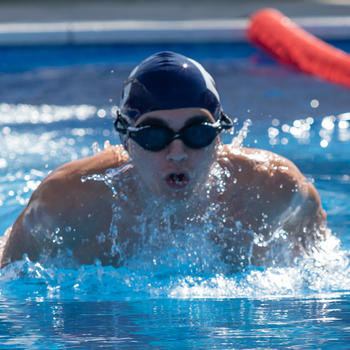
GCSE
Pearson
Component 1:
Fitness and Body Systems
1:30hrs - 36% - 80 marks
Component 2:
Health and Performance
1:15hrs - 24% - 60 marks
Component 3:
Practical Performance
Internally marked and externally moderated
30% - 35 marks per activity
Component 4:
Personal Exercise Programme
Internally marked and externally moderated
10% - 20 marks per activity
The Physical Education syllabus provides learners with an opportunity to study both the practical and theoretical aspects of physical education. It is designed to encourage enjoyment in physical activity by providing learners with an opportunity to take part in a range of physical activities and develop an understanding of effective and safe physical performance. This helps learners to develop an appreciation of the necessity for sound understanding of the principles, practices and training that underpin improved performance, better health and well-being.
Sports Psychology is the biggest growth area in the Sport Industry over the last decade! The Sports Industry is the 10th biggest in World Finance.
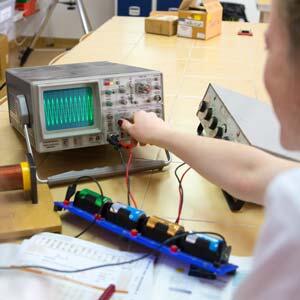
IGCSE
Cambridge International
The syllabus is assessed in three written papers:
These papers can be taken at core or extended level.
The IGCSE course in Physics is practically based with plenty of opportunities to perform experiments and investigations. Topics covered include Waves, Light, Sound, Mechanics, Thermal Physics, Magnetism, Electricity, Nuclear Physics and Space Physics.
It is often said that ‘mathematics is the language of physics’ which becomes increasingly important as the study of Physics progresses beyond IGCSE. It is therefore perhaps worth mentioning that students who enjoy Mathematics and have reasonable ability in the subject are also likely to enjoy Physics. Students who find Mathematics difficult are also likely to find Physics difficult, and this should be taken into consideration when choosing subjects at the end of Year 9.
Students taking Physics must have a competent level of Mathematics. The aim of the Physics course is to give students the opportunity to develop problem solving skills through theoretical and practical logical problems.
The World’s First Nuclear Reactor was Built in a Squash Court.
As reported in the Smithsonian Magazine, the experimental reactor was built during the height of World War II as part of the Manhattan Project, the army’s nuclear weapons program. Led by physicist Enrico Fermi, who described the rudimentary reactor as “a crude pile of black bricks and wooden timbers,” hopefully nobody was playing squash in there at the time!

IGCSE
Pearson
3 units:
You will cover 5 broad topic areas: Home and abroad; Education and employment; Personal life and relationships; The world around us; Social activities, fitness and health. You will expand your vocabulary and widen your range of tenses and language structures.
You will build upon your existing knowledge and understanding of the language and culture relating to the countries where the language is spoken.
You will develop your competence in the 4 main skills of listening, speaking, reading and writing. The course serves as a good basis for further language study.
Spanish is the second most spoken language in the world. There are 460 million native speakers. When hiring employees, many businesses look for candidates with the ability to speak Spanish. Fluent Spanish speakers are sought after in all areas of work. Therefore, by learning Spanish, you increase your chances of getting steady employment opportunities.
As well as specialising in the study of the language itself, you can combine the language with many other specialist subjects. A language will be an enrichment to any career and will open doors. In an even more globalised world, the need for linguists is constantly increasing and appealing to a huge variety of employers.
Some popular combinations in the past have been:

We recognize the importance of choosing the right school for your family and we are here to help. Please take the time to read through the Admissions pages to familiarise yourself with the admissions process, but don't hesitate to contact us if you have questions.
When you are ready please visit the Making an Enquiry page to begin the process of joining us.